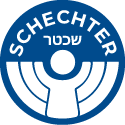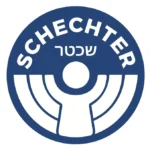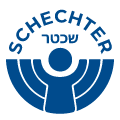Jewish Educational Traditions: Preserving Knowledge for Generations
At Schechter, we are committed to preserving and passing on the rich tapestry of Jewish knowledge and traditions that have been cultivated over millennia.
Jewish education is not merely a transfer of information but a profound commitment to the nurturing of minds and souls across generations. This process involves a deep engagement with Jewish texts, the fostering of communal values, and the development of a strong sense of identity and responsibility among our students.
Rooted in Textual Tradition
Torah and Talmudic Study: The cornerstone of Jewish education at Schechter is the study of Torah and Talmud. These ancient texts provide not only the religious tenets of Judaism but also a complex system of ethics, laws, and historical narratives that guide our moral and spiritual lives. At Schechter, students engage with these texts from an early age, learning to read, interpret, and question the teachings within. This engagement fosters a deep respect for our heritage and develops critical thinking and analytical skills that are essential in all areas of life.
Hebrew Language Mastery: The Hebrew language is fundamental to Jewish education. It is the language of our sacred texts and the living language of the State of Israel. At Schechter, Hebrew is not only a subject but a key to unlocking the rich cultural and religious heritage of the Jewish people. Proficiency in Hebrew enhances students’ understanding of their traditions and connects them with Jews around the world, reinforcing a sense of global Jewish community.
Emphasizing Ethical Living
Ethics and Values Education: Jewish educational traditions place a significant emphasis on ethical living and moral decision-making. At Schechter, we integrate these values into every aspect of our curriculum. Through the study of biblical stories, rabbinic teachings, and modern ethical dilemmas, students explore complex questions about justice, responsibility, and human dignity. This education shapes not just scholars but morally conscious individuals who are prepared to apply these principles in real-world contexts.
Tikkun Olam (Repairing the World): Central to our mission is the concept of Tikkun Olam, which calls on individuals to engage in the betterment of the world. Schechter students learn that they have a responsibility to contribute positively to their communities and the world at large. Through community service projects, environmental stewardship, and social justice initiatives, students put their values into action, learning that they can make a meaningful impact even at a young age.
Fostering Community and Continuity
Community Engagement: The strength of Jewish education lies in its ability to build community. At Schechter, we emphasize the importance of communal rituals, celebrations, and prayers, which reinforce a sense of belonging and collective identity. These communal practices not only connect students to their traditions but also to each other, creating bonds that support them through their educational journey and beyond.
Inter-Generational Learning: A unique aspect of Jewish education is its focus on inter-generational learning. At Schechter, we encourage interactions between students and members of the broader Jewish community, including seniors, community leaders, and Holocaust survivors. These interactions enrich students’ understanding of their heritage and the continuity of the Jewish experience. They learn that they are part of a chain of tradition that stretches back generations and will continue long into the future.
Preparing Future Custodians of Jewish Knowledge
Leadership Development: We are deeply committed to developing the next generation of Jewish leaders. At Schechter, leadership education is intertwined with Jewish learning. Students are taught to lead prayers, facilitate classroom discussions, and organize community events. These experiences prepare them to take on leadership roles within the Jewish community and beyond, ensuring that they are ready to preserve and pass on Jewish traditions.
Adapting to Modernity While Honoring Tradition: In today’s rapidly changing world, Schechter remains committed to adapting educational methods to meet contemporary needs while still honoring traditional Jewish teachings. We incorporate modern pedagogies, technology, and insights from various disciplines into our teaching to make Jewish education relevant and accessible to today’s students. This balance of tradition and innovation is key to maintaining the vibrancy and relevance of Jewish education.
Conclusion
At Schechter, the preservation of Jewish educational traditions is about more than maintaining customs; it is about nurturing a love for learning, community, and ethical living that our students will carry with them throughout their lives. By instilling in them the values and wisdom of our past, we prepare them to be the custodians of Jewish knowledge and traditions for future generations. This is not just an educational mission; it is a profound responsibility—one that we embrace with dedication and honor.









